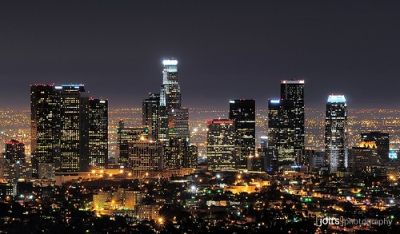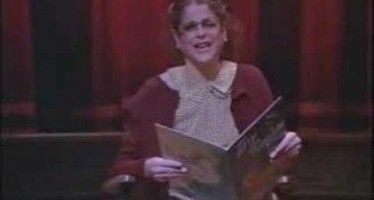L.A. mayor’s State of City address skips economic woes
 In January 2014, a blue-ribbon commission created at the behest of Los Angeles City Council President Herb Wesson presented the council with a report titled “A Time for Truth” — a hugely downbeat account of the economic decline of the nation’s second-largest city. Here is part of the L.A. Times’ account:
In January 2014, a blue-ribbon commission created at the behest of Los Angeles City Council President Herb Wesson presented the council with a report titled “A Time for Truth” — a hugely downbeat account of the economic decline of the nation’s second-largest city. Here is part of the L.A. Times’ account:
Los Angeles is a city facing economic decline, weighed down by poverty, strangled by traffic and suffering from a crisis of leadership, according to a report released Wednesday by a 13-member panel of influential civic leaders.
The Los Angeles 2020 Commission offered a harsh assessment of government decision-making, warning that the nation’s second-largest city is heading to a future where it can no longer afford to provide public services. Among a litany of problems highlighted in the report are underfunded retirement programs for City Hall employees, slower police and fire response times, and government spending that is growing faster than revenue. …
Among the challenges highlighted by the panel: a poverty rate higher than many other American cities; city revenue that has remained flat since 2009; a shrinking middle class; and “wishful” responses to a “continued economic decline.”
Garcetti focuses on public safety, building standards
But Los Angeles Mayor Eric Garcetti, elected in May 2013, continues to focus on other issues and not take on what the commission depicts as the causes of his city’s broad decline. That was evident Tuesday in his second State of the City address, as reported by the L.A. Times:
[New] public safety initiatives … headlined the mayor’s second State of the City speech, delivered at Cal State Northridge. During the broad-ranging address, which lasted nearly an hour, Garcetti recounted accomplishments of his first two years in office and elements of his agenda he is still pursuing.
Among the ongoing initiatives the mayor cited is a proposal to raise the city’s minimum wage and mandate the strengthening of buildings that could collapse in a major earthquake. In the San Fernando Valley, where Garcetti chose to deliver his speech, the latter topic has special resonance for residents who suffered the worst effects of the 1994 Northridge earthquake.
He said he hopes a major earthquake “will not happen during my time as mayor, and God willing, not in our lifetimes. But it will happen. It’s overdue.”
The mayor announced new technology-related policy proposals that could prove controversial: Collecting taxes from the vacation-rental company Airbnb and allowing the ride-share services Uber and Lyft to pick up customers at Los Angeles International Airport. (Currently, the app-based ride services can only pick up limited numbers of passengers at LAX.)
On a more pedestrian note, Garcetti pledged to place 5,000 new trash cans in the city to help remedy what he called “dirty streets lined with broken TVs and abandoned couches.”
40 percent of city’s residents live in poverty
The Times also noted the mayor emphasized his accountability by saying “as long as I’m your mayor, I won’t duck bad news. I’m going to own it.”
Bruce Bialosky, a Los Angeles writer, doesn’t agree. This is from his sad take on his home city on Townhall.com last year:
Eight percent of Los Angelenos earn poverty pay. If you include those out of work, they state 40 percent of residents live in misery.
Los Angeles is the only one of seven major metropolitan areas in the country to have a net decline in employment over the last decade.
Major industries are leaving; none are moving here. Twelve companies on the Fortune 500 used to call Los Angeles home, and now just four do.
The school system graduates just 60 percent of its students from high school and only 32 percent are qualified for either the UC or Cal State University systems.
The pension system has set aside only 10 percent of the future needs of city workers.
The “Time for Truth” report can be read here.
It is not the only grim look at Los Angeles’ economy. According to a UCLA Anderson report issued last year, L.A. saw a 3 percent decline in payroll jobs from 1990 to 2013. During that span, L.A.’s population went up 11 percent, from 3.49 million to 3.85 million.
Chris Reed
Chris Reed is a regular contributor to Cal Watchdog. Reed is an editorial writer for U-T San Diego. Before joining the U-T in July 2005, he was the opinion-page columns editor and wrote the featured weekly Unspin column for The Orange County Register. Reed was on the national board of the Association of Opinion Page Editors from 2003-2005. From 2000 to 2005, Reed made more than 100 appearances as a featured news analyst on Los Angeles-area National Public Radio affiliate KPCC-FM. From 1990 to 1998, Reed was an editor, metro columnist and film critic at the Inland Valley Daily Bulletin in Ontario. Reed has a political science degree from the University of Hawaii (Hilo campus), where he edited the student newspaper, the Vulcan News, his senior year. He is on Twitter: @chrisreed99.
Related Articles
Greece suffers California’s future
May 1, 2012 By John Seiler Greece is leading the way for California — off a cliff. The two polities
Whitman 'mistreats' workers
Katy Grimes: Democratic gubernatorial candidate Jerry Brown’s campaign sent out an email blast today with more accusations of Republican candidate
A Vote on Taxes? Never Mind
John Seiler: For more than three months now, we’ve been lectured by Gov. Jerry Brown, his fellow Democrats and government



